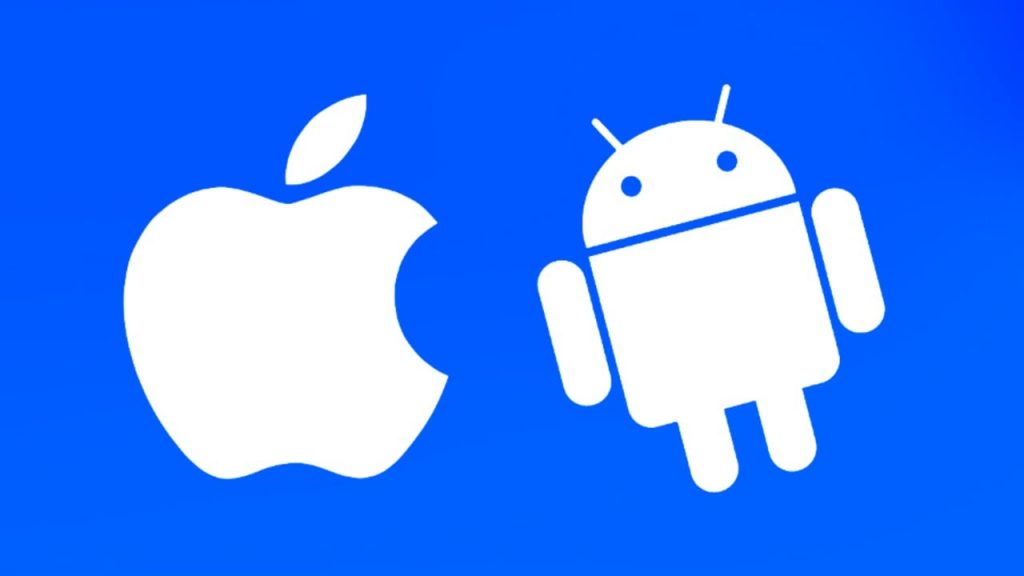The mobile app market is a huge and growing industry, with over 38 billion apps downloaded in the first quarter of 2023 alone. This makes it a very attractive market for businesses of all sizes. However, creating a successful mobile app requires more than just a great idea. It also requires careful planning and execution.
While Android holds a dominant 70.79% market share, and iOS follows closely with 28.44% as of June 2023, it might be tempting to choose Android development alone to save on costs and time. But there are other important aspects to consider. Depending on the project, it might make sense to build an iOS app exclusively or to develop for both platforms simultaneously.
Continue reading to learn more.
Android vs. iOS app development
Android and iOS are the two most popular mobile operating systems in the world. They have different strengths and weaknesses, so the best choice for you will depend on your specific needs.
Android, created by Google, is an open-source operating system widely used across various devices, from smartphones to smart appliances. Major brands like LG, Sony, Samsung, Xiaomi, and Huawei frequently adopt Android for their electronics due to its cost-effectiveness.
Initially, Android apps were developed using Java, but in 2019, Google designated Kotlin as the preferred language for Android app development. Kotlin, a modern language by JetBrains, flawlessly interoperates with Java.
On the other hand, Apple’s mobile devices exclusively run on iOS, a more closed-off system with standardised UI, limiting customisation options. However, adhering to Apple’s design principles ensures visually appealing results. Modern iOS apps are built using Swift, introduced in 2014, which replaced Objective-C as Apple’s primary programming language for mobile development. Swift offers developers contemporary solutions and seamless interoperability with Objective-C code.
Business owner’s perspective
When choosing a mobile operating system (OS) for app development, business owners need to consider a number of factors. Before blindly following technological trends, it’s important to evaluate the potential effects and consequences.
Several key factors are essential for a business owner when comparing Android and iOS:
Target audience
Android and iOS have different user bases, with Android being more popular in developing countries and iOS being more popular in developed countries. If a business is targeting a global audience, Android is a good option because it has a larger market share. However, if a business is targeting a specific region or demographic, iOS may be a better option.
Development cost and timelines
The cost and timelines for developing an app on Android and iOS are similar. However, Android apps can take up to 20% longer to develop because of the different screen sizes and resolutions of Android devices. The cost of publishing an app on the Google Play Store is $25, while the cost of publishing an app on the Apple App Store is $99 per year.
Monetisation strategy
The monetisation strategies for Android and iOS apps are also different. Android apps are typically free to download and generate revenue through in-app purchases and ads. iOS apps can be free or paid, and they can also generate revenue through in-app purchases and ads.
Application developer’s perspective
From an application developer’s perspective, various factors come into play when diving into Android and iOS application development.
Predicting potential issues and making informed tech decisions require an understanding of the technical aspects of the application. Here are the key points of comparison between Android and iOS application development:
Development tools
Android apps are developed using Android Studio, while iOS apps are developed using Xcode. Android Studio is a more open-source platform than Xcode, which gives developers more flexibility. However, Xcode is a more mature platform with a larger community of developers.
Complexity of development
Android app development is more complex than iOS app development because there are a wider variety of Android devices with different screen sizes and resolutions. This means that Android apps need to be tested on a wider range of devices to ensure that they work properly.
UI/UX differences
Android apps and iOS apps have different UI/UX design styles. Android apps follow Material Design, which is a design language that is focused on being functional and easy to use. iOS apps follow Human Interface Design, which is a design language that is focused on being simple and elegant.
Final verdict
Deciding whether to build a business app for Android or iOS first depends on several factors: your audience’s location, demographics, desired features, development timeline, and budget.
If your goal is to quickly and cost-effectively create a minimum viable product, iOS might be the preferred option. Similarly, if your aim is to generate revenue or develop an e-commerce app, iOS should be considered.
However, if you’re targeting global or emerging markets, particularly in Asia and Latin America, or if your app requires features that are unsupported by Apple, then Android becomes the more favourable choice.
If you’re still unsure about choosing between iOS and Android app development, we can help. We have experience developing mobile apps for both iOS and Android, and we can help you assess your needs and goals to determine the best platform for your business. Our team can also provide valuable insights on the budget and costs involved in developing for Android and iOS.
Contact us today to learn more about our mobile app development services.



